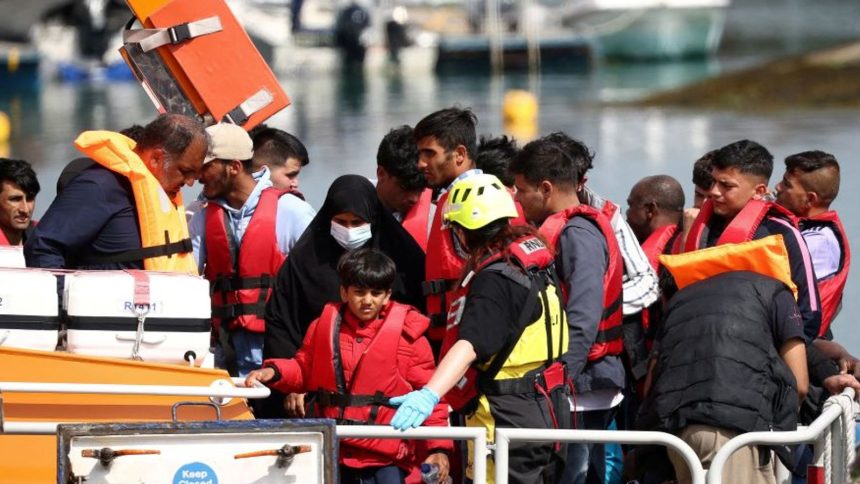The Home Office has run campaigns attempting to deter illegal migration in Albania, France and Belgium for the last three years, but now Home Secretary James Cleverly has agreed an expansion into several new countries.
Influencers on TikTok are to be paid by the British government to urge migrants not to cross the Channel in small boats.
The Home Office has run campaigns attempting to deter illegal migration in Albania, France and Belgium for the last three years, but now Home Secretary James Cleverly has agreed an expansion into several new countries.
Mass advertising campaigns will take place in Albania, Iraq, Egypt and Vietnam, with plans to also introduce them in Turkey and India, according to draft documents seen by The Times.
A shortlist of influencers drawn up in Albania reportedly includes a rapper, two comedians, lifestyle bloggers, TV personalities and a travel writer, who were chosen for their ability to appeal to young men.
The paper said the Home Office had a budget of about £30,000 to pay the Albanian influencers – which would be capped at £5,000 per person.
A £15,000 budget had been set to pay influencers in Egypt and Vietnam, The Times said, adding that the budget for Turkish, Iraqi and Indian influencers has yet to be decided but a total of £576,500 had been signed off for the five countries.
A spokesperson for the Home Office told Sky News: “People smugglers frequently use social media to peddle lies and promote their criminal activities, and it is vital that we utilise the same platforms to inform migrants about the truths about crossing the Channel and coming to the UK illegally.
“The relentless action we have taken reduced crossings by 36% last year, which saw similar weather conditions to 2022.
“We make no apologies for using every means necessary to stop the boats and save lives.”
Nearly 116,000 people have entered the UK by making the dangerous journey across the Channel on small boats since 2018, according to Home Office data.
More than 1,600 migrants have made the crossing so far this year, with leaked Border Force documents suggesting the number could rise to around 35,000 in 2024.



